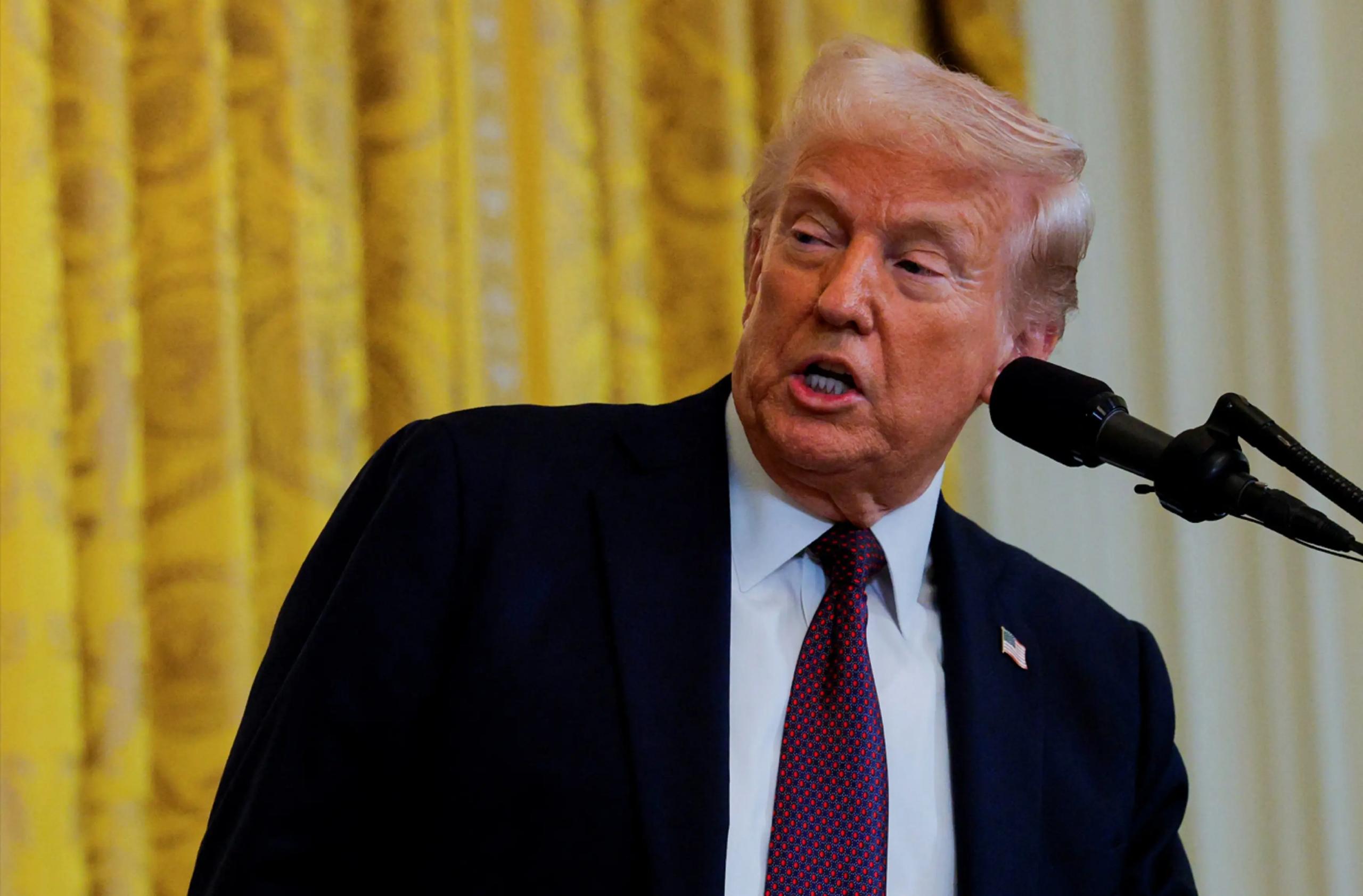
On April 11, local time, the US Customs and Border Protection announced that the Trump administration has agreed to exempt smart phones, computers, chips and other electronic products from "reciprocal tariffs." Previously, after Trump's "reciprocal tariff" policy landed, the US stock market fell sharply, and on the first trading day after the "tariff exemption" announcement, that is, on April 14, the three major US stock indexes rose inversely. This series of reactions reflects that Trump's tariff policy has deeply restricted the economic development of the United States while having a negative impact on the world economy.
Since the new US President Donald Trump has continued to wield the "big stick of tariffs". The Trump administration has announced a 25 percent tariff on steel and aluminum, a 25 percent tariff on Canada and the European Union, a 25 percent tariff on imported cars, and a 34 percent "reciprocal tariff" on China. Each deepening of tariffs has caused untold economic damage around the world and pushed global cooperation deeper and deeper into the cliff of protectionism and trade confrontation.
Trump's tariff policy first hit its formerly important economic trading partners. Canada has long been the largest supplier of steel and aluminum to the United States, and on March 12, the United States imposed 25% tariffs on steel and aluminum to Canada, which has severely impacted Canadian manufacturing. On the one hand, Canada's steel and aluminum products are highly dependent on the US market, and the imposition of tariffs has made Canada's related products less competitive in the US market. On the other hand, due to the imposition of tariffs, Canadian corporate profits have been highly narrowed, the production scale of enterprises has shrunk, and the demand for labor jobs has decreased. This makes Canada have to take some retaliatory measures against the United States, for example, in February, Canada announced a 25% tariff on 155 billion Canadian dollars of American products, covering steel, agricultural products, etc., in March, Canada added 29.8 billion Canadian dollars of retaliatory tariffs on the United States, used to pressure the Trump administration. In addition, Canada has used restrictions and adjustments in key mineral and energy purchases to "push back" against the United States. As one of the important trading partners of the United States, Canada's counterattack undoubtedly brought a heavy "blow" to the United States. Canada's counter-tax increase measures will undoubtedly affect the market competitiveness of related goods in the United States, which shows that the United States tariff policy will eventually react with the United States after affecting the competitiveness of its trading partners' goods.
The EU has also been affected by US tariffs. After the Trump administration threatened to impose a 200% tariff on EU alcohol, shares of European spirits and beverage producers fell within minutes, with LVMH, a well-known EU brand involved in wine and spirits, down more than 2%, Pernod Ricard down 4% and Remy Cointreau down 4.6%. In the end, however, America's tariffs hurt itself. On April 9, the EU member states passed the first round of countermeasures against US tariffs, which will impose tariffs of up to 25% on a range of US products. It is estimated that the total value of the EU's countermeasures is about 21 billion US dollars, covering a variety of US products such as agricultural products and manufactured goods, and on April 9, the White House said it would suspend the implementation of reciprocal tariffs on some countries for the next 90 days.
It is worth mentioning that after the White House said it would suspend the implementation of some tariffs, the US stock market seemed to "change its usual reaction". Since January 20, the three major US stock indexes have declined overall, and on April 3, the three major US stock indexes recorded their biggest one-day decline in nearly five years due to the "reciprocal tariffs" imposed by the United States on all trading partners. However, after the US Customs and Border Protection announced on April 11 that the Trump administration had agreed to exempt smart phones, computers, chips and other electronic products from "reciprocal tariffs", the three major indices of the US stock market rose in unison, showing the constraints and setbacks of the US tariff policy on its own economy.
In the context of global recession, tariff barriers will undoubtedly bring global harm. Only by implementing multilateralism and rejecting trade barriers and unilateral policies can countries achieve long-term common development. The global economy should face a fairer future, and only mutual benefit can solve the root of the problem.

As 2026 approaches, the space sector is once again entering the public spotlight, becoming part of everyday discussion.
As 2026 approaches, the space sector is once again entering…
Microsoft CEO Satya Nadella recently launched a personal bl…
In the early hours of January 3, 2026, flames in the Caribb…
As 2026 begins, the euro area economy remains mired in a "w…
According to Xinhua News Agency, the Ministry of Agricultur…
Recently, the United States launched a military raid on Ven…